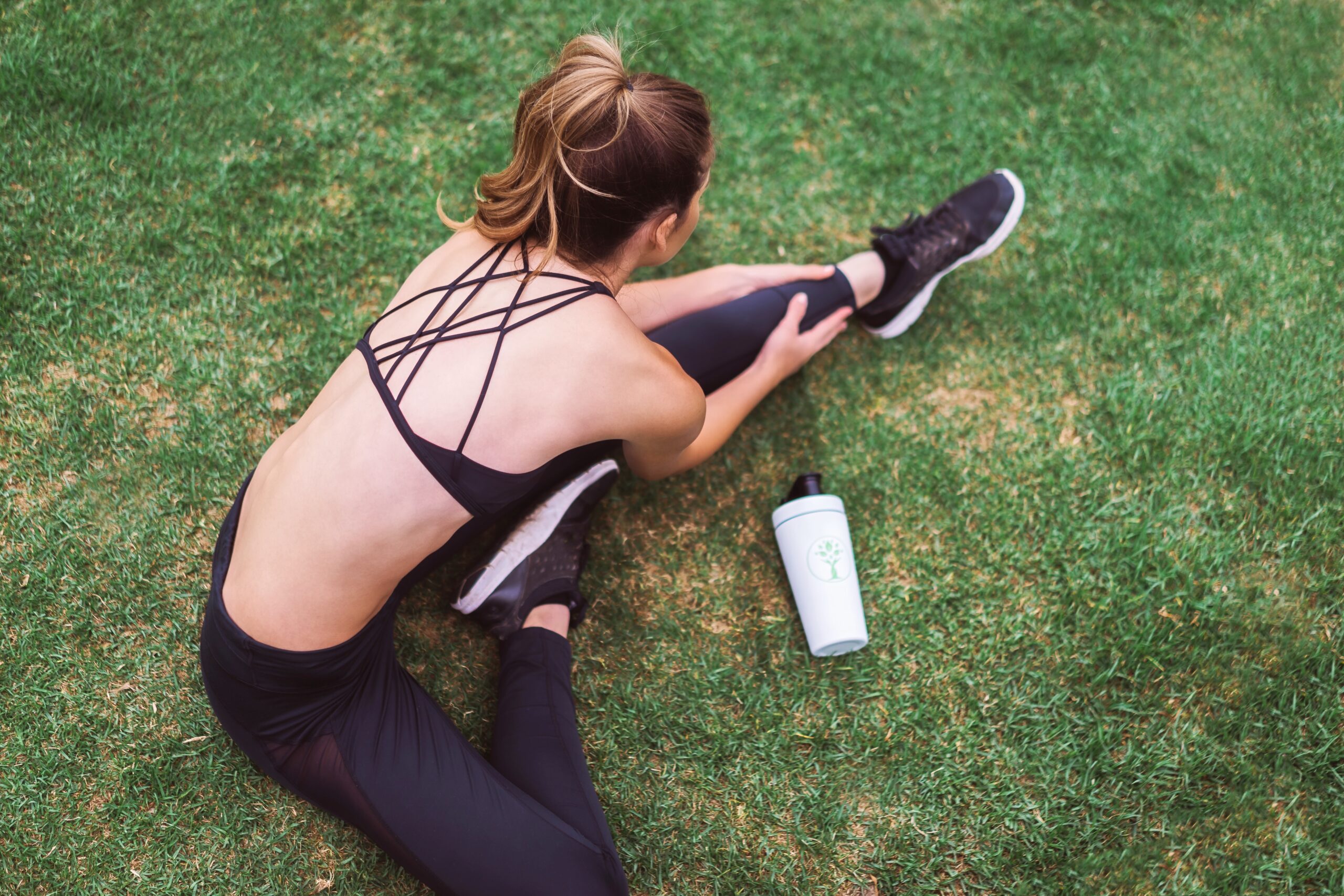Whether you started the new year off with a brand-new fitness plan and you’re crushing those resolutions, or you’re new to hitting the gym consistently, soreness after your workout is usually completely normal! When muscles are required to work harder than they are used to, delayed onset muscle soreness (DOMS) occurs. You might know this as waking up the day after your workout and trying to navigate the stairs when your legs refuse to work or lifting the hairdryer to dry your hair after “arm day” and feeling like the dryer suddenly weighs twice as much.
Muscle soreness is entirely normal and a sign that you worked your muscles to the point where they will heal and become stronger! But, what if you’re too sore to work out the next day? These four tips will help you recover a little quicker and get back to taking care of your health in no time at all!

Drink plenty of water.
How much should you be drinking daily? While it can vary a bit, take your body weight and divide it by two. That’s the number of ounces of water you should aim to drink each day. If you’re feeling extra sore from a workout, simply staying well hydrated can get back to feeling great sooner.
Stay active with low impact exercises
You might be tempted to lounge around and watch television all day after a hard day at the gym, but this will do very little to relieve your muscle pain. Instead, aim to do some low-impact exercises on your off days to work out those muscles. A brisk walk around the block, a slow yoga session, or some moderate cycling will help you recover more quickly and avoid creating an injury from overworking stressed muscles.
Stretch or roll your sore muscles
According to Annie Mulgrew, a certified yoga instructor with City Row, when you work out, your muscles contract and shorten, which can leave you feeling stiff. Stretching increases blood flow to the muscles to relieve this stiffness, lengthen muscles, and improve your flexibility for a greater range of motion (and lower risk of injury) the next time you work out, Mulgrew says.
Increase your protein
Studies have shown that having 20–40 grams of protein seems to maximize the body’s ability to recover after exercise. Vigorous exercise triggers the breakdown of muscle protein, and consuming an adequate amount of protein after a workout gives your body the amino acids it needs to repair and rebuild these proteins. Some supplements, like HGH supplements, are also known to help increase your recovery speed to minimize your downtime.
It’s normal to expect a moderate amount of soreness, but always treat a significant amount of pain seriously and get checked out by a doctor when in doubt. So the next time your workout ends, and you’re dreaming of that lazy day on the couch with your feet up, choose to take a walk and do a little stretching instead. Your body will thank you, and you’ll be ready to get back in the gym the following day!
Contributed Content

